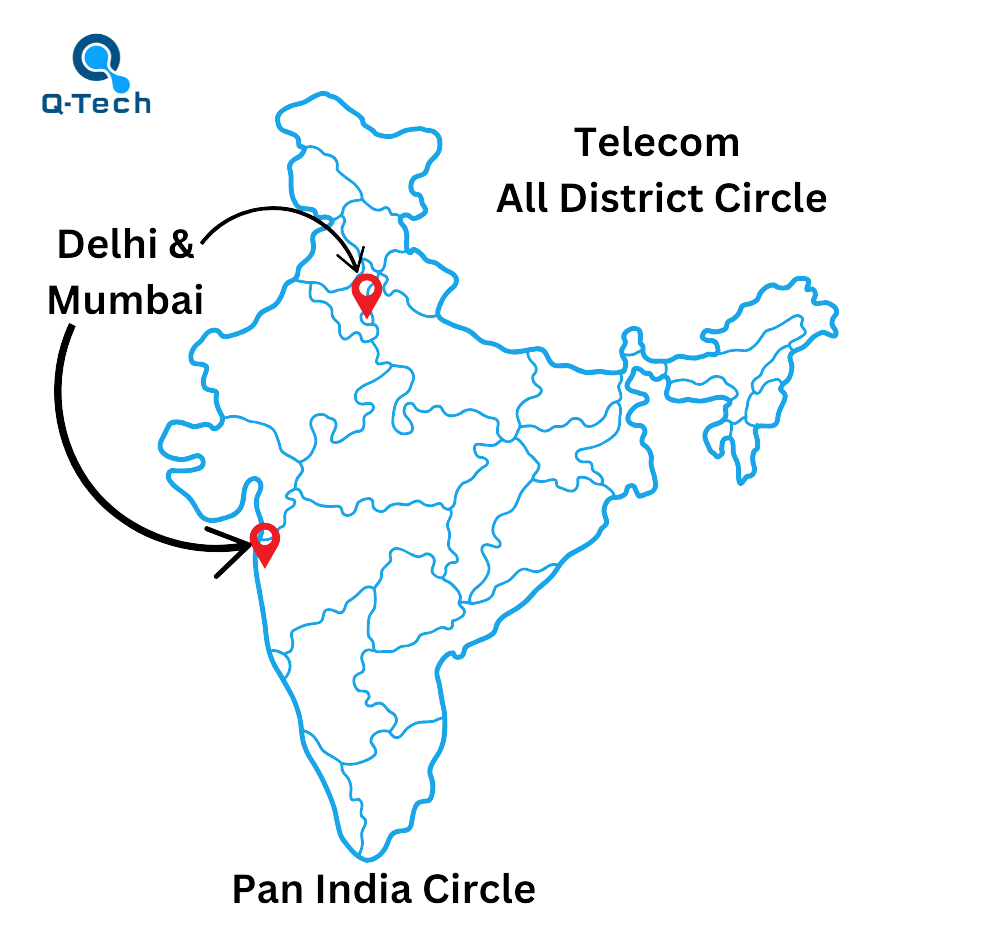ISP License for Internet Service Providers (ISPs)
The Internet Service Provider (ISP) License allows operators to offer a range of broadband, leased line, internet telephony, and other digital connectivity services across various regions. This license is key for expanding internet access and enhancing communication infrastructure.
About ISP Licenses
The ISP license enables service providers to offer nationwide or regional internet and telecom services. This includes broadband, leased lines, and enterprise solutions, enhancing digital connectivity and expanding broadband reach.
-
Comprehensive Coverage
-
Scalable Solutions
-
Advanced Connectivity
Enabling nationwide or regional telecom services to provide essential connectivity, including broadband and VoIP, across urban and rural areas.
Providing scalable infrastructure to support both small businesses and large corporations with seamless digital services.
Supporting modern connectivity technologies like fiber optics, 5G, and satellite communication for high-speed and reliable internet services.
Categories of ISP License
-
Category A
-
Category B
-
Category C
Best suited for large-scale ISPs looking to serve government contracts, enterprises, and urban/rural markets across India.
State-level ISP license for providing services within specific states.
District-level ISP license tailored for localized telecom services within specific telecom districts.


IPv4/IPv6 License for ISPs
To enhance internet connectivity and address the growing demand for IP addresses, the ISP licenses now include IPv4 and IPv6 address allocation:
-
IPv4/IPv6 Address Allocation
-
Global IP Addressing
-
Compliance with Global Standards
ISPs must apply for IP address allocation, which is crucial for providing internet access to their customers. IPv4 addresses are still in high demand, while IPv6 addresses are essential for future-proofing networks and handling growing data traffic.
With the adoption of IPv6, ISPs can scale their services globally, offering more addresses and improving service quality for a larger customer base.
ISPs must ensure compliance with global internet standards for IP address allocation to avoid service interruptions and meet future demands for network scalability.
Process to Apply for ISP License
Follow these steps to apply for an ISP license:
-
Step 1: Application Submission
-
Step 2: Fee Payment
-
Step 3: Evaluation and Review
-
Step 4: License Issuance
Complete the ISP license application form available on the DoT website and submit the required documentation.
Pay the application fee through the official channels and ensure compliance with all regulatory requirements.
Authorities will evaluate the infrastructure and financial strength of the applicant, ensuring compliance with necessary standards.
Once the evaluation is complete, the ISP license is issued, allowing the operator to provide internet services according to the allocated scope.
For further details, refer to the Department of Telecommunications (DoT) website.

